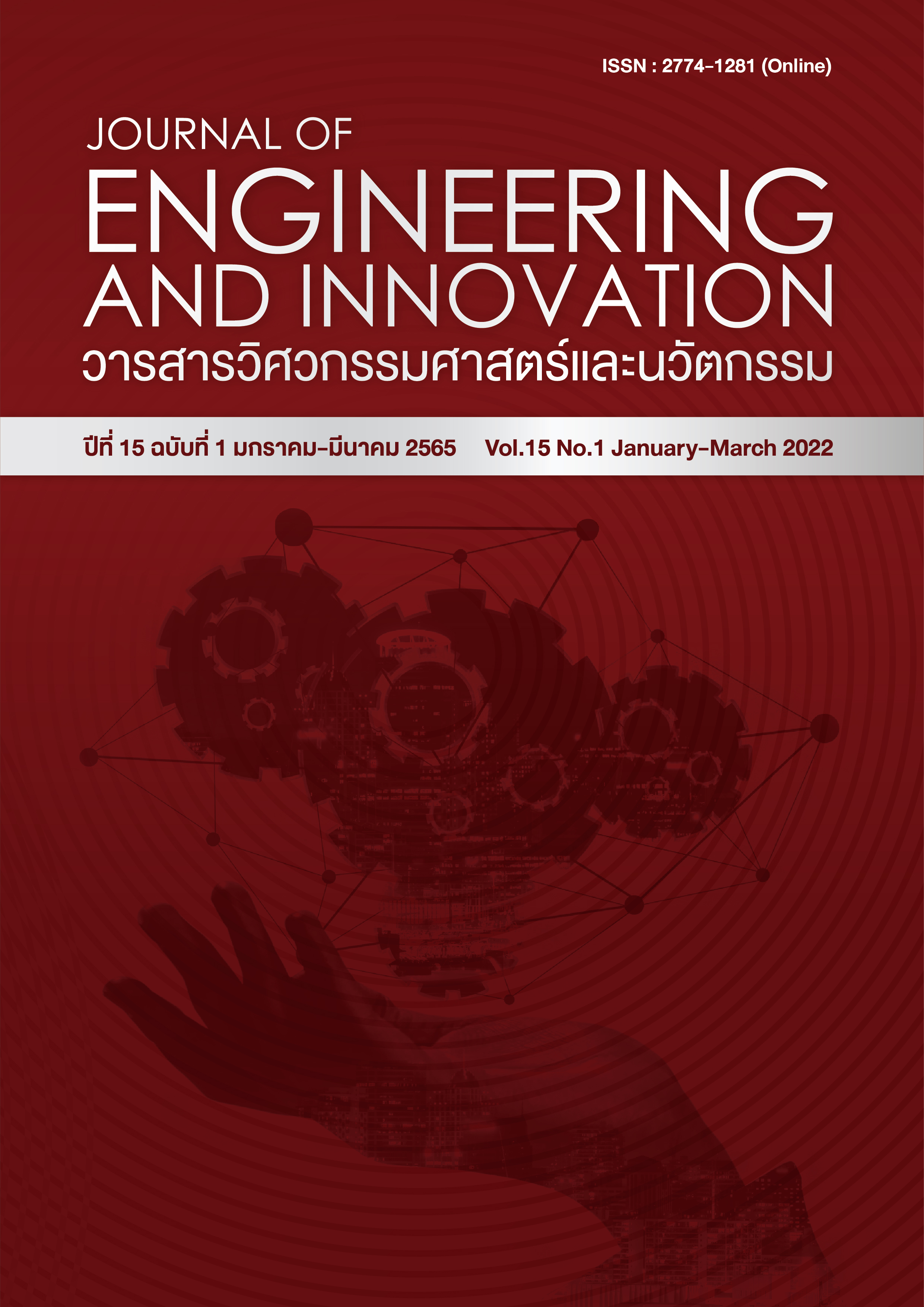ตัวชี้วัดความสำเร็จและความยั่งยืน สำหรับการบริหารโครงการเชิงพื้นที่ กรณีศึกษา: การบริหารโครงการด้านแหล่งน้ำ
Main Article Content
บทคัดย่อ
การวัดความสำเร็จหรือความยั่งยืนของโครงการเชิงพื้นที่ เป็นเรื่องที่ต้องบูรณาการความรู้เพื่อสามารถประเมินผลดำเนินโครงการได้อย่างมีประสิทธิภาพ บทความนี้ศึกษาตัวชี้วัดความสำเร็จ และความยั่งยืนของการบริหารจัดการโครงการเชิงพื้นที่ โดยศึกษาทั้งจากโครงการจริง และทบทวนวรรณกรรม เพื่อได้ข้อมูลปฏิบัติและทฤษฎี จากนั้น วัดความเที่ยงตรงเนื้อหา โดยสัมภาษณ์ผู้เชี่ยวชาญห้าคน ที่เกี่ยวข้องกับการพัฒนาโครงการเชิงพื้นที่ เพื่อตัดตัวแปรที่ไม่เกี่ยวข้อง พัฒนาแบบสอบถามเพื่อทดลองใช้กับโครงการตัวอย่าง คือ โครงการบริหารจัดการน้ำ อ่างเก็บน้ำห้วยคล้าย อันเนื่องมาจากพระราชดำริ อำเภอหนองวัวซอ จังหวัดอุดรธานี ใช้ทดลองเก็บข้อมูลเพื่อปรับปรุงแบบสอบถาม แบบสอบถามที่ปรับปรุงแล้วถูกส่งไปยังประชากรที่เกี่ยวข้องทั่วประเทศ จากผลวิเคราะห์ด้วยโปรแกรม SPSS แสดงห้าตัวชี้วัดที่มีผลต่อความสำเร็จในการบริหารโครงการเชิงพื้นที่ คือ 1) มีศูนย์ข้อมูล และความรู้ในชุมชน 2) มีศูนย์ข้อมูล และองค์ความรู้สำหรับการเพิ่มผลิตผลการเกษตร 3) จัดแบ่งส่วนงบประมาณมายังโครงการขณะดำเนินการ 4) นำความรู้ในท้องถิ่นมาใช้ในโครงการ และ 5) ผู้นำชุมชนสามารถประสานงาน ส่วนตัวชี้วัดที่มีผลต่อความยั่งยืนมีสี่ตัวชี้วัด คือ 1) การดำเนินโครงการคำนีงถึงการอนุรักษ์สิ่งแวดล้อม 2) การอนุรักษ์ป่าไม้ ต้นน้ำลำธาร 3) บูรณาการ เศรษฐกิจ สังคม สิ่งแวดล้อม และวัฒนธรรม และ 4) มีการดำเนินโครงการ ที่ไม่ทำให้สิ่งแวดล้อมเป็นพิษ
Article Details
เอกสารอ้างอิง
สำนักงานคณะกรรมการพิเศษเพื่อประสานงานโครงการ อันเนื่องมาจากพระราชดำริ. โครงการอันเนื่องมาจากพระราชดำริ. เข้าถึงได้จาก: http://www.rdpb.go.th [เข้าถึงเมื่อ 8 กุมภาพันธ์ 2550]
The Royal Development Projects Board (RDPB). Projects initiated by His Majesty King Bhumibol Adulyadej: Background of the Royal Development Projects. Available from: http://kanchanapisek.or.th [Accessed 25th March 2005]
United Nations. Indicators of Sustainable Development: Guidelines and Methodology. New York: United Nations; 2007.
อำพล เสนาณรงค์. องคมนตรีของคนไทยช่วยกันเผยแพร่เศรษฐกิจพอเพียง. เข้าถึงได้จาก: http://www. manager. co.th/QOL/View News.aspx [เข้าถึงเมื่อ 20 กุมภาพันธ์ 2550]
สุรยุทธ์ จุลานนท์. (2550). นายกฯ เดินสายแจงนักลงทุนย้ำปี 50 เร่งปฏิรูปเศรษฐกิจพอเพียงอ้าแขนรับต่างชาติ. เข้าถึงได้จาก: http://www.naewna .com/new.asp
สุเมธ ตันติเวชกุล. ใต้เบื้องพระยุคลบาท. กรุงเทพมหานคร: มติชน; 2549.
เกษม วัฒนชัย. ยูเอ็นนำแนวปรัชญาเศรษฐกิจพอเพียงเผยแพร่ 114 ประเทศทั่วโลก. เข้าถึงได้จาก: http://www. manager.co.th/Home /View News.aspx [เข้าถึงเมื่อ 15 มกราคม 2559]
จิรายุ อิศรางกูร ณ อยุธยา. ตามรอยพระยุคลบาทด้วย “ปรัชญาเศรษฐกิจพอเพียง”. เข้าถึงได้จาก: http://www. Komchadluek.net [เข้าถึงเมื่อ 15 มกราคม 2550]
มูลนิธิปิดทองหลังพระ สืบสานแนวพระราชดำริ. โครงการบริหารจัดการน้ำอย่างยั่งยืนอ่างเก็บน้ำห้วยคล้าย อันเนื่องมาจากพระราชดำริ จ.อุดรธานี. เข้าถึงได้จาก: http// www.pidthong.org [เข้าถึงเมื่อ 20 มีนาคม 2550]
Aksorn P, and Charoenngam C. "Key Measurements for Local Infrastructure Sustainability: Case Study of Communities in Thailand.," in The Governance of Local Communities: Global Perspectives and Challenges, Reilly TF. (Ed) New York: Nova Science; 2017, pp. 165 - 181. [Accessed 1th October 2019]
Klevas V, Streimikiene D, Kleviene A. Sustainable Assessment of the Energy Project Implementation in Regional Scale. Renewable and Sustainable Energy Reviews. 2009; (13):155-166.
Mitchell D, Clarkeb M, Baxterc J. Evaluation Land Administration Project in Developing Countries. Land Use Policy. 2008; (25):464-473.
Azerrad JM, Nilon CH. An Evaluation Agency Conservation Guidelines to Better Address Planning Efforts by Local Government. Landscape and Urban Planning. 2006(77):255-262.
Eedlenbruch K, Thoyer S, Grelot F, Kast R, Enjolras G. Risk-sharing Policies in the Context of the French Flood Prevention Action Programs. Environmental Management. 2009; (91):363-369.
Raymond CM, Fazey I, Reed MS, Stringer LC, Robinson GM, Evely AC. Integrating Local and Scientific Knowledge for Environmental Management. Environmental Management. 2010(91):1766-1777.
Ferguson J, Huysman M, Soekijad M. Knowledge Management in Practice: Pitfalls and Potentials for Development. World Development. 2010; (38): 1797-1810.
Peskircioglu N. MpM’s Productivity Improvement Project Approach in Provinces. Productivity and Performance Management. 2008; (56):440-448.
Mancini JA, Marek LI. Sustaining Community-Based Program for Families: Conceptualization and Measurement. Family Relations. 2004; (53):339-347.
Allison PD. Multiple Regression. California: Pine Forge Press; 1999
